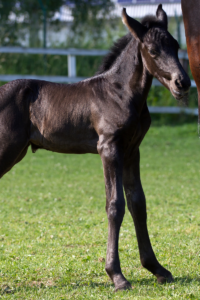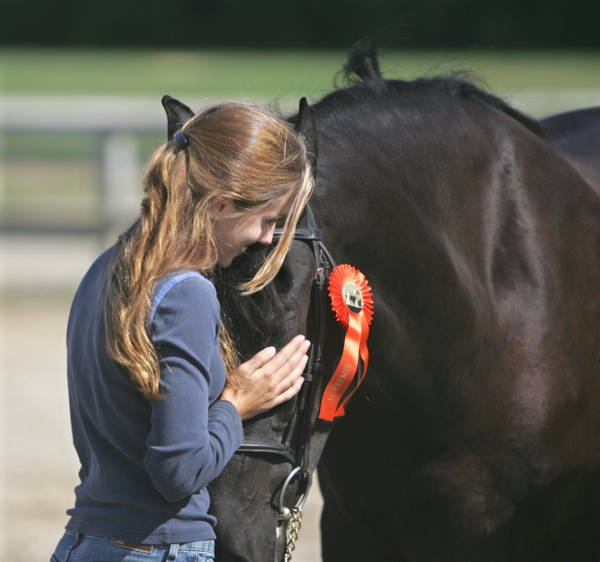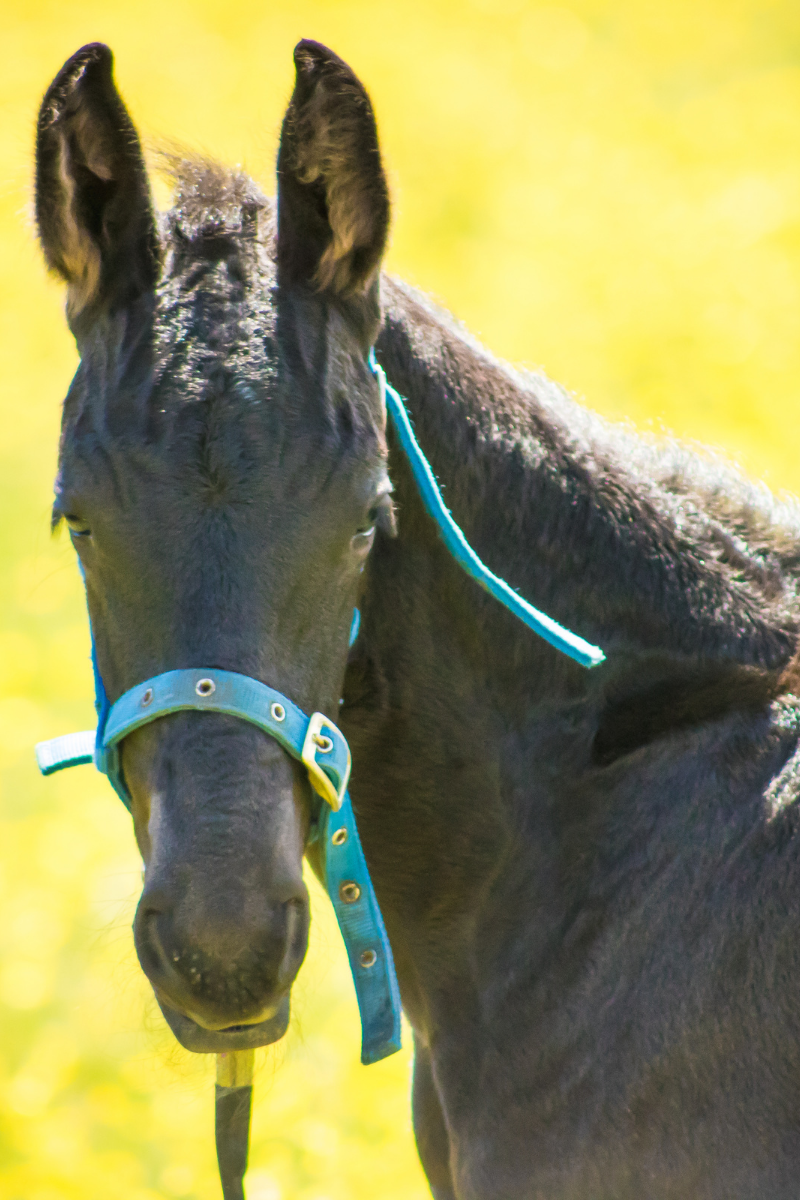There’s just so much to love about Friesian foals. From their cute faces to their sometimes-mischievous behaviors, you can’t help but smile when you’re around these adorable creatures! A foal’s playful and curious nature is often infectious. Maybe you’re a foal expert, or you just think that they’re precious. Regardless of your previous foal experience, here are some fun foal facts that anyone can appreciate!
A foal is not considered a foal for very long.
A baby horse is only considered a foal for the first year of its life. After that, if it’s a male, it’s called a colt until about 2-3 years of age. If it’s a female, it’s called a filly until it’s about four years old.
Foals are often born during the night.
It’s most common for mares to give birth sometime during the night. Most foals are born sometime between midnight and 6 a.m. Foals are born in the dark because horses are prey animals. Both the mother and baby are very vulnerable during this time, and the cover of darkness helps to protect them. This is also the time of night that mares feel most safe and comfortable.
Foals learn to stand on their legs as early as 2 hours after birth.
In fact, many foals can stand within 30 minutes! They may be wobbly when they take their first steps, but they sure catch on quickly! After all, standing up and walking is essential for nursing from their mothers. And that needs to happen as soon as possible!
It’s common for foals to be born bow-legged.
It may look alarming, but it’s very common in baby horses! Within a few days of birth, foals gain a significant amount of strength. And as they get stronger, their legs start to straighten up.
A foal typically isn’t born with teeth.
Foals don’t need teeth to nurse from their mother during their first days in the world. But they don’t have gummy mouths for long! Within a week after birth, most foals will have their four incisors. And within a few weeks, they’ll have a complete set of 24 baby teeth.
 Foals are born without the protection of an immune system.
Foals are born without the protection of an immune system.
Foals enter the world without much defense against infections and diseases. In fact, a foal’s immune system doesn’t develop until they’re a few months old. That means foals are vulnerable to all kinds of illnesses. So, closely monitoring newborn foals is very important to catch early warning signs.
A foal’s legs are up to 90% grown at birth.
If you think that foals look very leggy at birth, your eyes aren’t playing tricks on you! Their adult legs are already almost full grown. Baby horses have evolved this way as prey animals. With long legs at such a young age, they can keep up with the herd and travel long distances.
The first milk a foal drinks is critical to their health.
This first milk from their mother is called colostrum. Colostrum is important for a newborn foal because they’re born without an immune system to protect them. A foal should get colostrum from their mother within the first few hours of birth.
Foals are weaned around four to six months of age.
At this early age, foals are ready to be fully independent from their mothers. That’s pretty incredible! Can you imagine an infant being separated from their mother at such an early age?
Foals are typically born in the spring.
Most mares give birth in the spring or early summer. This happens naturally because the summer season is full of rich grass. When the mare can get ample nutrients into her diet through the grass, her milk will also be full of nutrients.

I’ve been around horses my entire life, but my Friesian journey started just over 20 years ago. Our horses have always been a part of our family. They have traveled with us as we relocated from Vermont to New York to Iowa and finally, to Arizona. I can’t wait to share our story with you!
Related
Apr 17, 2022
Top 10 Friesian Foal Facts

Leave a Reply Cancel reply
@starlitridgefriesiansandfells
LET'S BE FRIENDS ON INSTAGRAM